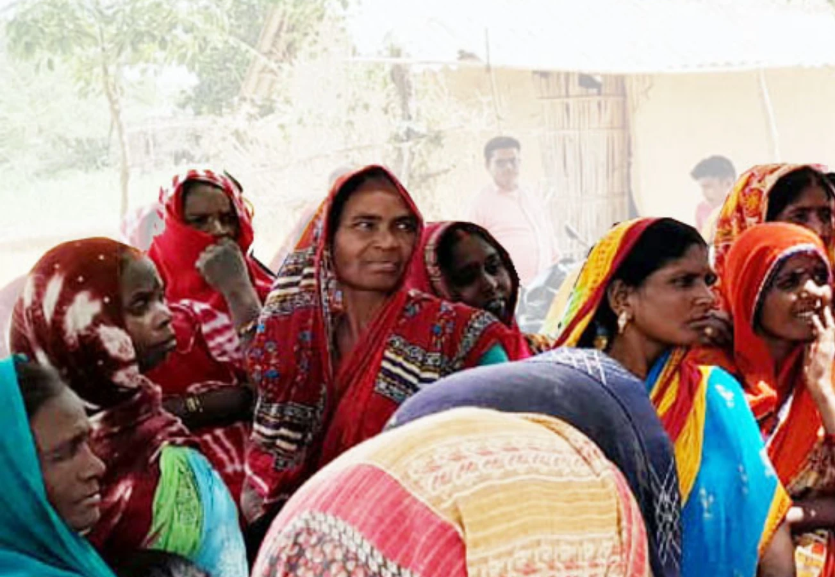A quick glance at the invaluable contribution of nonprofits in bringing about social change in India
FEBRUARY 27 is globally acknowledged as World NGO Day to celebrate the relentless efforts of nonprofits around the world and the people behind them. India has over 3 million NGOs that work across a range of fields and play important roles of implementer, catalyst or partner in bringing social transformation.
Pandemic highlights NGOs’ critical role
In the present scenario when India is still combating COVID-19, NGOs have been on the ground, working tirelessly to provide critical services to vulnerable groups and support the government’s efforts. The COVID-19 induced lockdowns created an economic crisis in addition to a prevailing public health emergency.
Quick to realise the gravity of the situation, many NGOs in different parts of the country stepped up and kickstarted their efforts to identify hotspots, raise awareness and distribute essentials. They created emergency funds, partnered with others to channel donations, and assisted medical teams in hospitals and nursing homes with support and crucial supplies.

Working on the frontlines, NGOs continue to provide rations, food through community kitchens, medicines, and hygiene kits to the needy. For the vulnerable and marginalised, that include the elderly, daily wagers, migrant workers, persons with disabilities, transgenders, sex workers, the homeless, and the poor, NGOs have been their lifeline during the pandemic. Their efforts are a testament to the unflinching commitment to social responsibility towards India and its citizens.
On World NGO Day, here’s looking at five key roles NGOs play in bringing about social change by collective effort and changing mindsets.
1. Disaster Relief
Disaster response, relief and rehabilitation is a critical function taken up by NGOs, to supplement the government’s efforts, during the times of natural calamities like floods, earthquakes, cyclones, landslides, COVID-19 pandemic, etc. Adversity affects impoverished groups of people unequally. They have little means to cope with the crisis. The rescue operations with trained disaster response teams, delivery of relief supplies and instant aid from NGOs save and sustain lives.

For instance, Goonj provided relief during the recent floods in West Bengal, Assam and Bihar. In its COVID-19 relief mission, Goonj also reached out to over 17,000 families with ration kits and distributed more than 77,000 cooked meals to migrant labourers, rag pickers, transgenders, sex workers, and remote tribal villagers. Let’s salute them on World NGO Day.
2. Raise awareness and funds
NGOs are engaged in raising awareness about a diverse range of issues pertaining to human and labour rights, education, environment, gender inequality, healthcare and more. They do this through awareness campaigns, workshops, street plays, etc that educate and inspire people to come together and work for the cause.
They also raise awareness among their own beneficiaries about critical issues such as health, hygiene, sanitation, malnutrition, etc. NGOs also help raise funds for communities in need and without the means. Fundraising is done through philanthropic donations, pro bono contributions, or strategic funding.
NGOs like ASSIST, TIDE, and Haritika are urging people and the government to pay heed to the ongoing climate crisis and take necessary measures to combat climate change and environmental conservation. Similarly, HumSafar Trust advocates for LGBTQ rights, sensitising and raising awareness of employers, educational institutes, law enforcement agencies and government bodies.
3. Restore human rights
Poverty is a human rights violation. The poor are commonly denied a right to a life of dignity and deprived of their most basic necessities of food, healthcare and education. With no say in what affects their lives, they are condemned to a life of poverty generation after generation. A just world is only possible when the rights of all individuals are restored and protected without any form of discrimination.
Organisations like Shramik Bharti work to empower communities living in extreme poverty. One of their initiatives is the grain banks, managed by women’s self-help groups (SHGs) in villages, that ensure food security for poor farmers. These banks provide grains on credit and the loan is returned at the time of harvest, in the form of grain, with an interest on the original quantity. This programme helps farmers escape the clutches of exploitative landlords and a vicious circle of debt-induced poverty.
3. Bridge the gap
NGOs bridge the gap in more ways than one and act as a medium. They endeavour to fill the gaps in programmes’ outreach deployed by the government to benefit the weaker sections of people. In a bid to help women overcome the difficulties in accessing sanitary napkins during the COVID-19 induced lockdown, the NGOs Praveen Lata Sansthan and Stonesoup Trust manufactured and distributed reusable sanitary pad kits for women from low-income groups in rural areas. Non profits also act as a bridge between donors and beneficiaries by collecting donations and relief supplies from the donor, managing logistics and technicalities to channel them to ensure that it reaches those in need.
4. Lobbying and advocacy for policy change
Advocacy is continuous persuasive efforts for peaceful and systematic changes to government policies by appealing to the public, communities, businesses, as well as the government itself. Advocacy and lobbying rely on influence, persuasion and encouragement to gain support for the particular policies through public awareness campaigns, workshops, editorial pieces and demonstrations.
NGOs like Save the Children have initiated several campaigns focused on the implementation of child-friendly policies, rehabilitation efforts and creating awareness about poor children’s circumstances.
5. Enable social justice
Social justice is the foundation stone of our constitution for equal opportunity to every citizen. Several NGOS direct their efforts to highlight the various forms of injustice prevalent in the society, identifying and initiating development measures to counter them. NGOs like Jan Sahas and Centre for Youth and Social Development are focussed on building awareness and community empowerment to improve the quality of life of people from excluded sections like Dalit and tribal communities. They also strive to eliminate ill practices such as manual scavenging, forced labour and caste and sexual violence.
The work of NGOs is critical in helping India fight discrimination, poverty, illiteracy, natural disasters, pandemics and numerous socio-economic issues. On World NGO Day, let’s applaud the efforts and initiatives of nonprofits working relentlessly and resolve to support and participate in their good work.
This World NGO Day, you can contribute through time and/or funds to help us and our partner organisations deliver on their targets of social progress. It’s only through empathy, greater engagement and connectedness with each other that we can build solidarity and a cohesive society.
–
Give’s mission is to “make giving bigger and better.” Give is the most trusted donation platform in India for fundraisers and crowdfunding campaigns. Through our technology solutions, we enable individuals and organisations to fundraise and donate to a cause, charity or NGO with trust and convenience. Give’s community of 2.7M+ individual donors and 300+ organisations supports 3,000+ verified nonprofits with 80G deduction and serves 15M+ people across India. Find a fundraiser today!

Samar is a Marcoms specialist and freelance writer. She has a master’s in marketing and creativity from ESCP Business School. She is an avid traveller and likes to write about technology, travel, wildlife and sustainability.
Discover more from
Subscribe to get the latest posts sent to your email.

